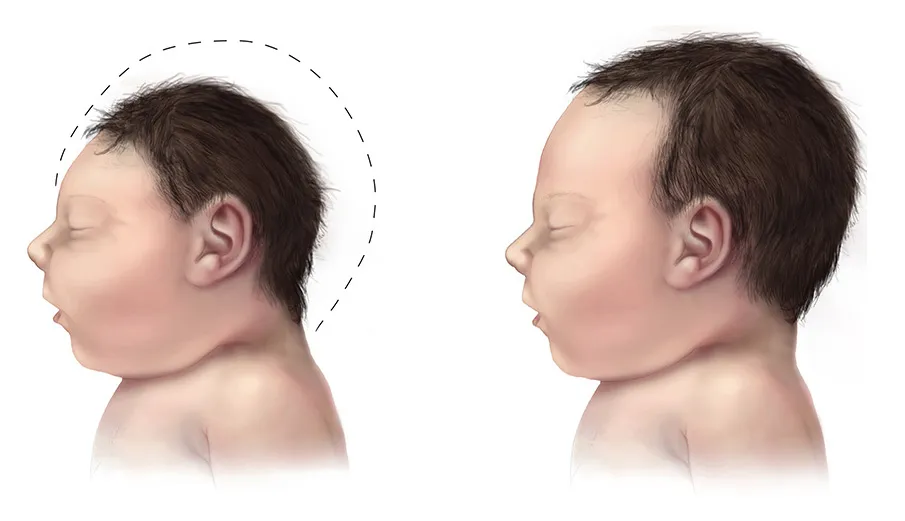Watching your toddler learn, grow, and develop is one of the most rewarding parts of parenthood. Each new achievement of toddler milestones—from the first steps to the first words—is precious and brings joy and excitement. However, there are times when parents notice their toddler is not hitting these milestones at the same pace as others.
This can lead to worry and uncertainty. When should you be concerned? And how do you know if your child is developing at their own pace or if there’s something more serious going on? This comprehensive guide will help you understand toddler milestones, when to be concerned, and what steps to take if you suspect your toddler may be facing developmental delays. With the right information, you’ll know when to reach out for professional help and how to support your child.
Understanding Toddler Milestones: What Are They?
Toddler milestones are developmental achievements that most children reach by a certain age. These milestones are important markers of progress in their physical abilities, speech and language, cognitive skills (thinking and problem-solving), and social and emotional development.
For parents and pediatricians alike, these milestones provide a guideline to track how a child is growing and developing. Each child develops at their own pace. While one toddler may begin walking at 10 months, another might take their first steps closer to 15 months. Both can be perfectly normal.
Milestones aren’t just about tracking when your child does something new. They also serve as early indicators of potential developmental delays. If a child is significantly behind in one or more areas of development, it could signal a need for early intervention, which makes a significant difference in long-term outcomes.
Categories of Toddler Development
Before we explore when to be concerned about your toddler milestones, we need to understand the main development categories. Each category has expected milestones that give you an idea of where your child should be by certain ages.
- Motor Skills: Gross motor skills (such as walking, running, and climbing) and fine motor skills (such as picking up small objects, using utensils, and scribbling).
- Speech and Language Development: How toddlers speak and understand language, including recognizing words, speaking, and forming simple sentences.
- Cognitive Development: These are skills related to thinking, problem-solving, and understanding the world around them.
- Social and Emotional Development: This category tracks how toddlers interact with others, form relationships, and manage their emotions.
Monitoring these toddler milestones allows parents to ensure their little one is growing as expected and gives pediatricians a tool for identifying potential developmental delays early. While some toddlers reach certain milestones sooner or later than others, there is a range of normal development.
Why Toddler Milestones Matter
Tracking milestones helps you and your pediatrician ensure your toddler develops as expected. While it’s perfectly normal for toddlers to hit milestones at different times, significant delays in reaching key milestones may signify a developmental disorder or other health issue that could benefit from early intervention.
One of the primary reasons toddler milestones matter is because they highlight areas where your child may need extra support. For example, if your toddler isn’t talking by a certain age, it may indicate a speech delay, which could benefit from speech therapy. Similarly, delays in motor skills suggest a need for physical or occupational therapy.
Early intervention has been shown to improve outcomes for children with developmental delays. The earlier you identify a delay and get help, the better the chances that your child will catch up to their peers. Delaying action can sometimes make it harder to close the gap later, so being proactive is key.
Key Toddler Milestones
To help you track your toddler’s progress, here are some general developmental milestones to look out for between 12 months and 3 years. These are just guidelines, and every child develops at their own pace.
1. Physical and Motor Milestones
- 12 to 18 months: Most toddlers begin walking independently or with minimal support. You might also notice that your child can pick up small objects, such as a piece of food, and feed themselves. Many toddlers can scribble with crayons or stack a few blocks.
- 18 to 24 months: Most toddlers can walk well and run, though they may still be unsteady. Kicking a ball, climbing onto furniture, and walking up and down stairs with help are common. They begin using utensils, like a spoon, though they may need more practice.
- By 3 years: Toddlers should be able to walk up and down stairs using alternating feet, pedal a tricycle, and have improved coordination. Fine motor skills continue developing, and your child may draw a circle or manipulate small objects with more control.
When Should You Be Concerned: Motor Skills Delays
- By 18 months: Not walking independently or with minimal support could indicate a delay. Other concerns might include stiff or floppy muscles, extreme clumsiness, or difficulty standing up.
- By 3 years: Your child has trouble walking, running, or using the stairs and has no fine motor skills, such as holding a crayon or using utensils; this could indicate a need for evaluation.
2. Speech and Language Milestones
- 12 to 18 months: Your toddler starts to say basic words like “mama,” “dada,” and possibly a few others, such as “ball” or “bye-bye.” They understand and follow simple directions like “Come here” or “No.”
- 18 to 24 months: Most toddlers have a growing vocabulary of 50 or more words and form simple two-word phrases, such as “more milk” or “want juice.” They identify body parts or familiar objects when asked.
- By 3 years: Toddlers speak in short sentences of 3-4 words. They understand and respond to simple questions, like “What’s your name?” or “Where’s the toy?” They also name common objects and people in their environment.
When Should You Be Concerned: Speech and Language Delays
- By 12 months: A lack of babbling or failure to use gestures like pointing is concerning. Also, if your toddler isn’t responding to their name or doesn’t understand simple commands,
- By 2 years: Your toddler isn’t using at least a few words or can’t follow simple directions. By this age, most toddlers can communicate their needs even if they aren’t speaking in sentences.
3. Cognitive Milestones
- 12 to 18 months: Your toddler shows interest in exploring the world around them. This includes activities like searching for hidden objects, trying to figure out how things work, or mimicking actions they’ve seen you perform.
- 18 to 24 months: Toddlers solve simple problems, such as fitting shapes into a sorter or completing a basic puzzle. Pretend play begins to emerge, such as pretending to feed a doll or talk on a toy phone.
- By 3 years: Toddlers understand the concept of counting, though they can’t count correctly. They follow two-step instructions, engage in more complex pretend play, and understand basic concepts of time, such as knowing that bedtime is at night.
When Should You Be Concerned: Cognitive Delays
- By 18 months: Your toddler shows no interest in exploring objects, lacks curiosity, or doesn’t engage in basic problem-solving activities.
- By 2 years: Your child isn’t engaging in pretend play, such as feeding a doll or using objects as stand-ins for something else.
- By 3 years: Trouble understanding basic concepts, such as sorting shapes or colors. An inability to follow simple instructions may also signal a delay.
4. Social and Emotional Milestones
- 12 to 18 months: Toddlers show preferences for certain people and toys. Separation anxiety may peak, and your child will likely display a range of emotions, from happiness to frustration.
- 18 to 24 months: Your toddler plays alongside other children, though they may not yet engage in cooperative play. They show a range of emotions, expressing frustration or happiness more clearly. Empathy, such as comforting a crying sibling or friend, also develops.
- By 3 years: Many children play with others and engage in cooperative play, such as taking turns in a game. They express empathy and are aware of other’s feelings. Emotional regulation, such as calming down after a tantrum, may improve.
When Should You Be Concerned: Social and Emotional Delays
- By 18 months: Your toddler isn’t responding or interacting with others, shows no interest in playing with others, lacks eye contact, or doesn’t show affection. If your toddler is frequently upset or has extreme reactions to changes in routine, this is worth discussing with your pediatrician.
- By 3 years: Has difficulty engaging in cooperative play, extreme shyness, or aggression may need further evaluation. A lack of empathy or trouble regulating emotions could also be signs.
- Severe tantrums or emotional outbursts: While all toddlers have tantrums, if your child’s emotional responses seem extreme or out of proportion to the situation, it may be worth discussing with a healthcare provider.
What to Do If You’re Concerned About Your Toddler Milestones
If you’re concerned that your toddler may be experiencing developmental delays in toddler milestones, the first step is to schedule a visit with your pediatrician. Your doctor assesses your child’s progress and may refer you to specialists. Early intervention services can be incredibly effective in helping children with delays catch up to their peers.
Early Intervention Programs
Early intervention services are available for children under age 3 experiencing developmental delays. These services, provided by state or local programs, offer tailored support to help your child hit toddler milestones in speech, motor skills, or social development.
Getting help early is key. Many children who receive early intervention go on to meet their toddler milestones and thrive. Early intervention is critical because the earlier a delay is identified, the better the chances that your child will reach their full potential. For example, children who receive speech therapy before age 3 can often catch up to their peers when they start school.
Working with Your Pediatrician
Your pediatrician will likely ask you questions about your child’s behavior, development, and other concerns about toddler milestones. They also conduct a physical examination and observe your child’s interactions. Based on this assessment, they may recommend further testing or referrals to specialists.
For example, speech therapy helps children struggling with language development, while occupational or physical therapy supports children with motor skill delays. In some cases, your pediatrician may recommend further evaluation by a developmental pediatrician, a specialist in childhood development. Don’t hesitate to voice your concerns on toddler milestones. As a parent, you know your child best, and your pediatrician is there to help guide you through any developmental challenges.
For more information on developmental milestones, visit Omegapediatrics.com and explore valuable resources like “11 Reasons Why Routine Check-ups are Important for Children’s Optimum Health” and “How to Support Your Child with Autism: The Role of a Pediatrician”
Toddler Milestones: Supporting Your Child’s Development at Home
Whether your child is meeting toddler milestones or needs extra support, there are plenty of things you can do at home to encourage their development:
- Talk to your child: Regularly speaking to your toddler, even if they aren’t yet talking back, helps build their language skills. Narrate what you’re doing during everyday activities, ask them questions, and respond to their babbling.
- Encourage play: Play is one of the best ways for toddlers to learn and develop new skills. Offer a variety of toys and activities that encourage problem-solving, creativity, and imagination.
- Read together: Reading books to your toddler helps build language and cognitive skills. Point to pictures, ask questions, and engage your child in the story.
- Provide opportunities for physical activity: Encourage your toddler to move, explore, and practice their motor skills. Activities like climbing, running, and jumping strengthen their muscles and coordination.
Trust Your Parental Instincts on Toddler Milestones
You know your child best, and you know if they’re hitting toddler milestones. If you’re worried about their development, seek professional advice rather than wait. While some take longer to reach certain toddler milestones, early intervention makes a difference for children facing developmental delays.
By tracking toddler milestones, addressing concerns early, and providing support at home, you give your little ones the best support they need to thrive. No two children are the same; they will grow and learn in their own time. Stay proactive, trust your instincts, and don’t hesitate to ask for help when needed. By working with your pediatrician and staying informed, you can support your child’s journey through these important developmental years.








